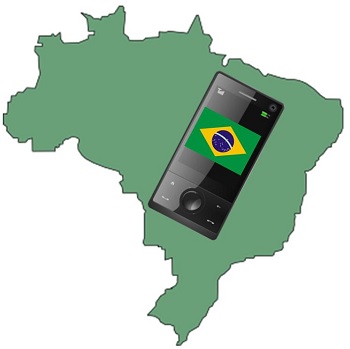The Barclay brothers owned online shopping group has reported a before tax profits quadrupling.
A recent report that was released by Shop Direct, an online and mobile commerce group owned by the Barclay brothers, and has reported that its before tax profits have now increased by four times, to reach £40.4 million.
The company owns a number of different online shops and saw profits for the first time in 2013.
Among the brands owned by Shop Direct are Very.co.uk, and Littlewoods. Despite that it had been in existence for a decade, the first time that it had ever turned a profit was last year. It has also now reported having seen a sales growth of 3 percent – the equivalent to £1.7 billion, during the year that led up to June 30, 2014.
According to the company, mobile commerce played a very important role in its increasing profitability.
 When looking at the figures presented by the company, it is not difficult to understand why it is crediting users of smartphones and tablets to its earnings successes. Its m-commerce took a very large portion of its sales, as a tremendous 44 percent of its transactions took place on some kind of mobile device.
When looking at the figures presented by the company, it is not difficult to understand why it is crediting users of smartphones and tablets to its earnings successes. Its m-commerce took a very large portion of its sales, as a tremendous 44 percent of its transactions took place on some kind of mobile device.
According to the chief executive of the company, Alex Baldock, these are very powerful results and were greatly driven by the increase in sales that took place from mobile devices, especially when it came to the Very.co.uk brand. He explained that “These are strong results, driven by the outstanding growth of Very.co.uk and the unrelenting boom in m-commerce. Mobile continues to be a game changer for us.”
This growth of shopping over mobile commerce at its newer brands such as Isme and Very.co.uk, has managed to offset the declining sales that it has been experiencing at some of its older “heritage businesses”. Its earnings before interest, taxes, depreciation, and amortization (EBITDA) came to £164.8 million after having risen by 24 percent. The group’s largest business is now Very.co.uk, and it boasts sales of over £700 million. This has made Shop Direct another solid example of the way that retailers can evolve in order to embrace shopping over mobile devices.
According to a recent announcement among top industry players, Brazil isn’t reaching its full m-commerce potential.
Some of the top players in the mobile commerce industry in Brazil have now revealed that this channel is being held back by limited profit margins and unstable broadband service in the country for medium and small sized retailers.
Moreover, there is also an overall lacking in terms of the awareness of the potential of m-commerce in this sector.
This, according to the primary mobile commerce complaints that were brought up during the Mobile+ forum which held panel discussions in São Paulo. Among the top problems that were identified during these discussions were the low profit margins that could be expected by retailers who participated in promotions such as “deal of the day” strategies. According to the CEO of the Kekanto city guide service, Fernando Okumura, “Sometimes the price of the ticket you can charge from a small retailer is not enough to be profitable.”
This shows that it is very difficult for smaller businesses to keep up with the requirements of mobile commerce.
 The issue isn’t necessarily with the methods that are available. Instead, it is in the understanding of the m-commerce channel, as a whole. For example, it was pointed out that it seems that small retailers may not be realizing that these daily deal coupons are designed to be used as an opportunity to advertise to a vast audience, as opposed to actually being an opportunity to profit from that specific sale.
The issue isn’t necessarily with the methods that are available. Instead, it is in the understanding of the m-commerce channel, as a whole. For example, it was pointed out that it seems that small retailers may not be realizing that these daily deal coupons are designed to be used as an opportunity to advertise to a vast audience, as opposed to actually being an opportunity to profit from that specific sale.
For example, many businesses use daily deal smartphone marketing coupons to get consumers in through the doors of their businesses. While they may not profit on the specific sale associated with the coupon, those same consumers may purchase something else while they are there, or they may learn about the businesses and return again another time, becoming a regular shopper.
Therefore, while this mobile commerce technique should be considered to be an advertising expense, it is being misinterpreted by some businesses and their opportunity is, therefore, being lost. This illustrates a clear need for greater education of businesses with regards to the use of mobile marketing and shopping offers and the way that smartphones can generate greater sales in-store.
 When looking at the figures presented by the company, it is not difficult to understand why it is crediting users of smartphones and tablets to its earnings successes. Its m-commerce took a very large portion of its sales, as a tremendous 44 percent of its transactions took place on some kind of mobile device.
When looking at the figures presented by the company, it is not difficult to understand why it is crediting users of smartphones and tablets to its earnings successes. Its m-commerce took a very large portion of its sales, as a tremendous 44 percent of its transactions took place on some kind of mobile device.
 The issue isn’t necessarily with the methods that are available. Instead, it is in the understanding of the m-commerce channel, as a whole. For example, it was pointed out that it seems that small retailers may not be realizing that these daily deal coupons are designed to be used as an opportunity to advertise to a vast audience, as opposed to actually being an opportunity to profit from that specific sale.
The issue isn’t necessarily with the methods that are available. Instead, it is in the understanding of the m-commerce channel, as a whole. For example, it was pointed out that it seems that small retailers may not be realizing that these daily deal coupons are designed to be used as an opportunity to advertise to a vast audience, as opposed to actually being an opportunity to profit from that specific sale.